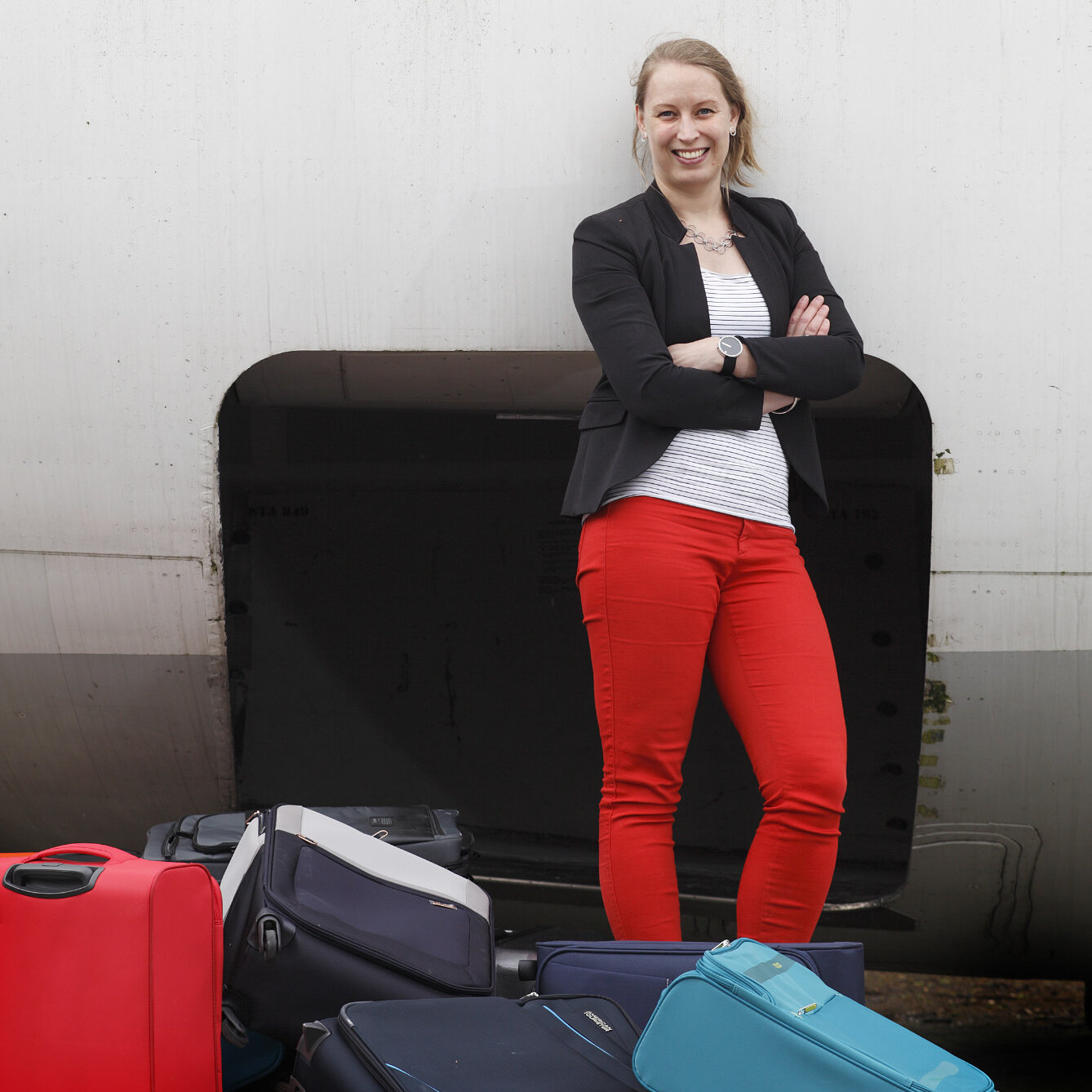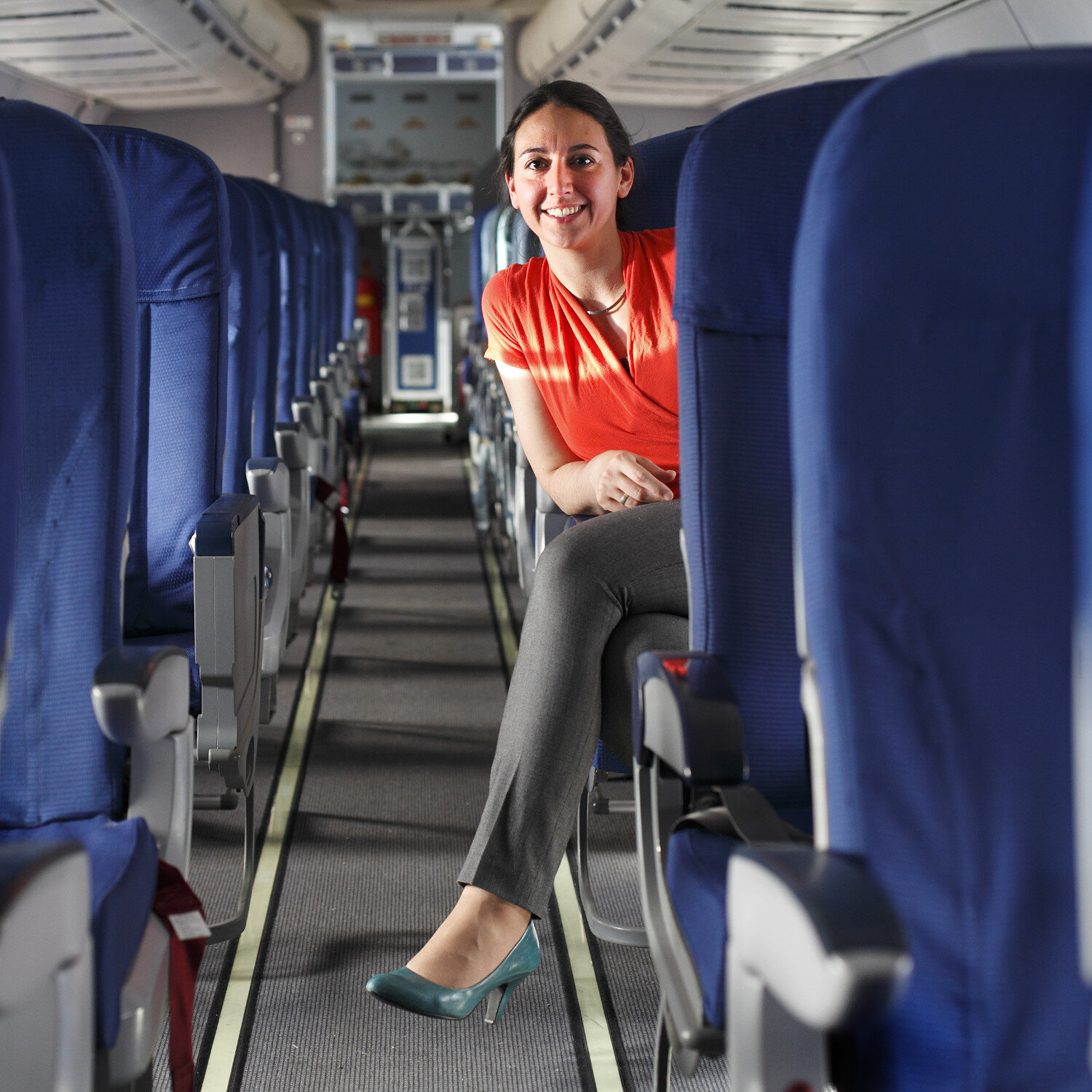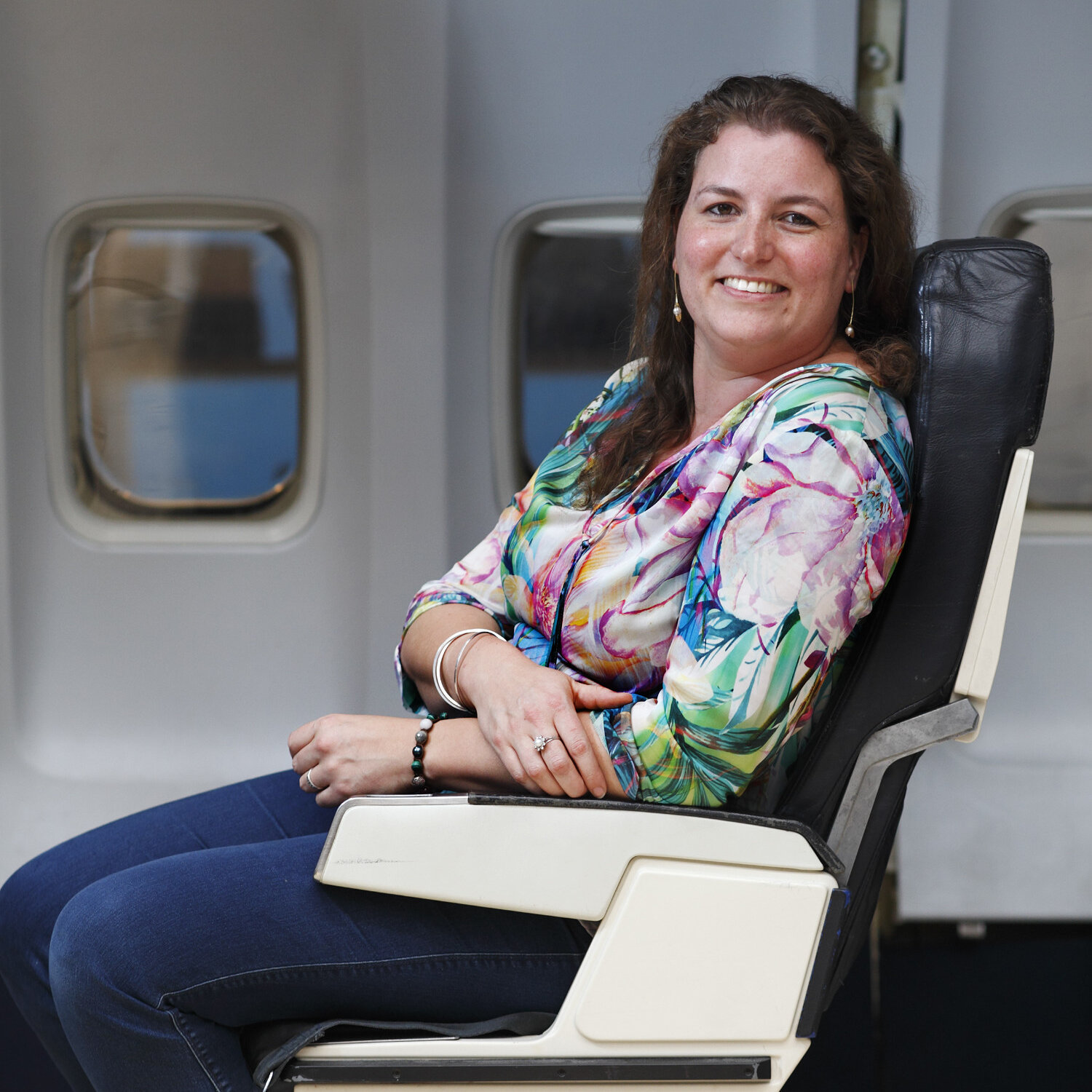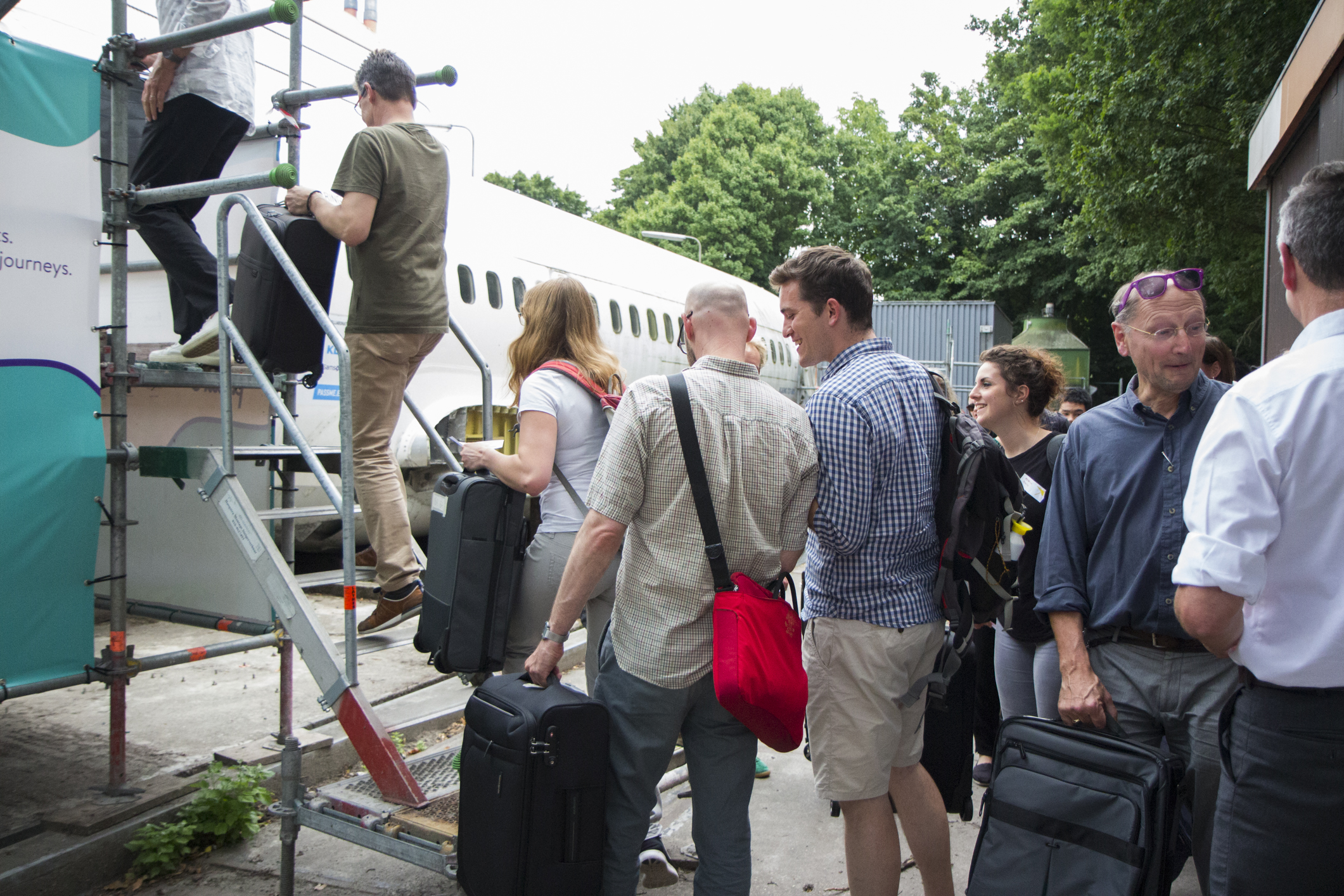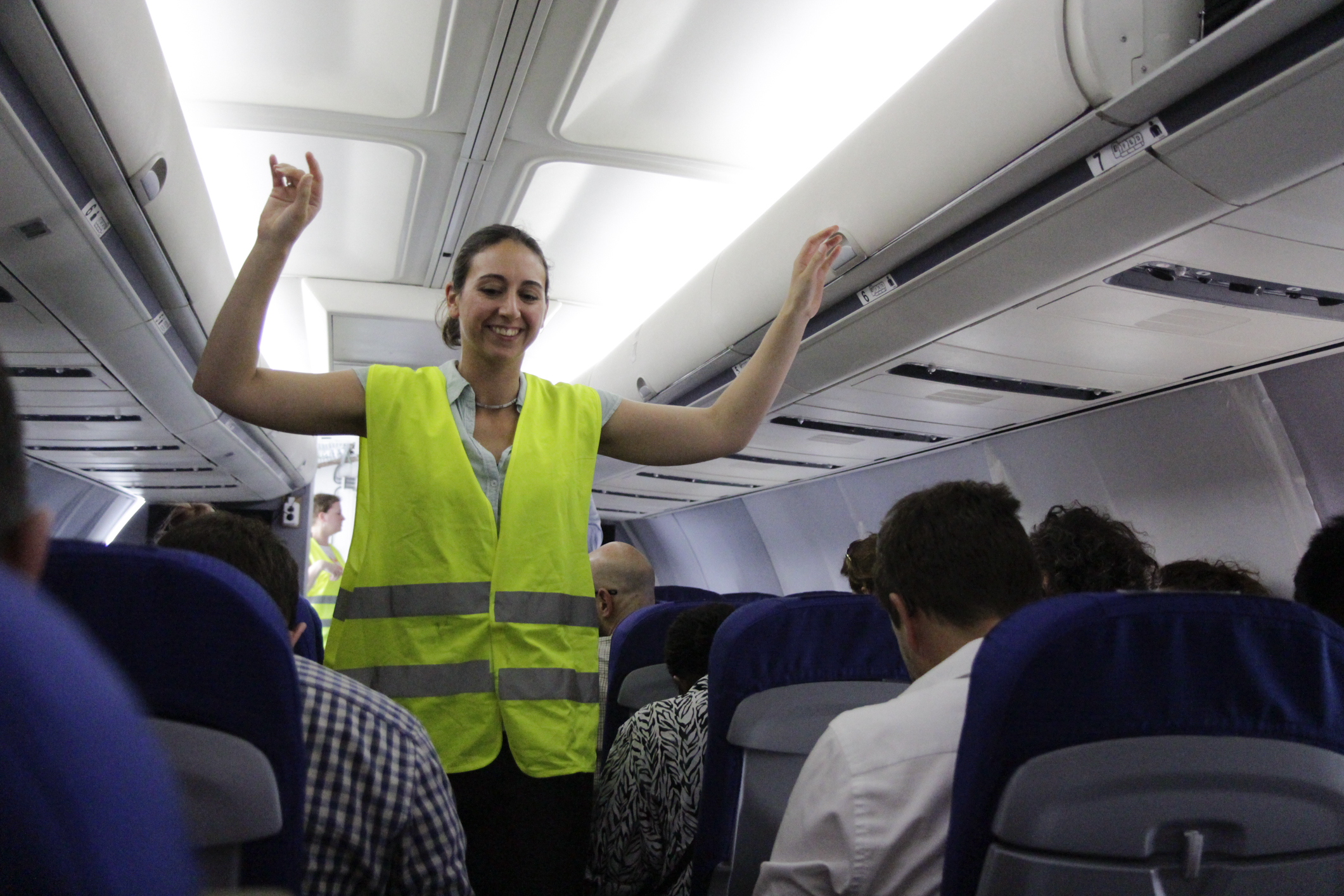Passengers at the centre for enhancing flight experience
Summer has started, and so has the holiday season. The further away the better, seems to be the motto nowadays. As a result, increasingly more people are choosing to go on holiday by air, often resulting in long queues, delays and annoyed passengers. Although we must guard against the fallacy that science can solve all problems with overcrowded airports, researchers from the Faculty of IDE are certainly doing their bit.
Photo's: Hans Stakelbeek
The faculty of IDE is coordinating a major European project known as PASSME. In PASSME, twelve partners, both from academia as from industry, are pooling their expertise to try and knock an full hour off the time it takes people to travel by air within Europe. At the same time, the aim is to make journeys more relaxed and less stressful for passengers. To accomplish this, the focus of PASSME is on the ‘extra leeway’ built into current procedures at the average European airport.
‘It is the passenger who is actually travelling from A to B,’ says IDE post-doc Katinka Bergema, who is working as a researcher in PASSME. ‘Our strength as designers is to think from the perspective of the passenger and their entire journey. This journey doesn't begin at the airport, but at the passenger's home,’
‘The passenger has to undergo all these procedures,’ Katinka continues. ‘If we put passengers at the centre, we can talk to all the parties involved and try to find ways of making things more efficient. We analyse what passengers go through, where the stress builds up, and how we can address this. In the end, relaxed passengers will find it easier to go through all these procedures.’
Katinka's own role within the PASSME project is to study luggage-free travel. Lugging suitcases from home to a check-in desk at the airport is unlikely to enhance passengers’ travel experience and often causes delays. ‘If we could find a way of picking up passenger luggage at home and dropping it off at the hotel rather than asking passengers to take it to the airport, their experience would improve and this may result in a win-win situation for the other parties concerned too.’
Fellow-post-doc Suzanne Hiemstra-van Mastrigt is focusing on improving the boarding experience, another factor responsible for waiting time and stress. ‘We have observed large groups of passengers, both at the gates and as they boarded the plane,’ explains Suzanne. ‘We noticed that lots of people go and stand in the queue long before it is time to board because they want to be sure there will be room for their hand luggage in the cabin. Once inside the plane, they look for their seat and then search for somewhere to store their carry-on bags. Then, without any hurry, they unpack the items they need during the flight from their carry-ons. All in all, this causes unrest and congestion in the narrow aisle between the seats.’
‘We use our own Boeing airplane fuselage on the campus to experiment with different solutions. For example, think of a system in the luggage bins that tells you exactly where to store your bag while you are boarding the aircraft. With this system, passengers could scan their luggage at home by taking a photo with a sheet of A4 paper next to the bag as a reference, so the app can calculate its dimensions. An algorithm then uses the dimensions and seat number to determine the optimal position for each particular piece of luggage and immediately tells the passenger if the luggage can be taken on board or not. Knowing this beforehand gives passengers assurance and thus more peace of mind.’
Other researchers from the Faculty of IDE are also working on improving the travel experience of passengers. Take ‘Design Doing’, for example, the long-term collaboration between TU Delft and KLM that was officially launched in February. Project leader is assistant professor Christine De Lille: ‘In Design Doing, students are working within the actual operation of KLM. They come up with all kinds of ideas to improve the flight experience of passengers, so that airlines can actually keep the promises they make to their passengers.’
‘The unique thing about this collaboration is that we can test the ideas directly, using actual passengers, gates and airplanes. We call this the X-approach. Special gates known as X-gates have been set up at Schiphol for this purpose. We want to find out as quickly as possible whether an idea actually works, and by doing so, we create a culture that allows for swift changes.’
Post-doc Rebecca Price is a new addition to the PASSME team. Rebecca brings industry experience from Australia, having worked for the Brisbane Airport Corporation during her PhD. Rebecca is interested in developing frameworks that translate technologies into meaningful and valuable solutions for everyone involved.
‘The aviation industry often views technology as a holy grail solution to rather complex problems,’ she explains. ‘But they need designers to make sure that technological solutions are actually solving real problems. We’d like to know, particularly with the near horizon developments of Internet of Things and machine learning, how can we apply design during digital innovation. All in the best interest of the passengers of course.’
